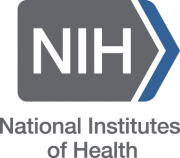Posted on April 18, 2019
Source: NIH

NIAID Researchers, International Collaborators Report Results of Small, Open-Label Study
"Regular infusions of an antibody that blocks the HIV binding site on human immune cells may have suppressed levels of HIV for up to four months in people undergoing a short-term pause in their antiretroviral therapy (ART) regimens, according to a report published online today in The New England Journal of Medicine. Results of the Phase 2, open-label study indicate the antibody, known as UB-421, was safe and did not induce the production of antibody-resistant HIV. The study was supported in part by the National Institute of Allergy and Infectious Diseases (NIAID), a component of the National Institutes of Health, and United Biopharma, Inc."
"The study was conducted in Taiwan and led by Chang Yi Wang, Ph.D., Chief Scientific Officer and Chairperson of United BioPharma, Inc. Twenty-nine volunteers with well-controlled HIV discontinued their normal regimens of daily oral ART at the time of their first infusion or one week later, depending on their ART regimen. Fourteen study participants received eight regular weekly infusions of UB-421, while 15 received eight higher-dose infusions every other week. At the end of the 8- or 16-week treatment period, all volunteers restarted their previous ART regimen and were evaluated in follow-up visits up to eight weeks later. Apart from a single participant who discontinued the study because of a mild skin rash, volunteers in both groups maintained HIV suppression (plasma HIV RNA levels under 20 copies/mL) throughout the treatment period in the absence of ART."